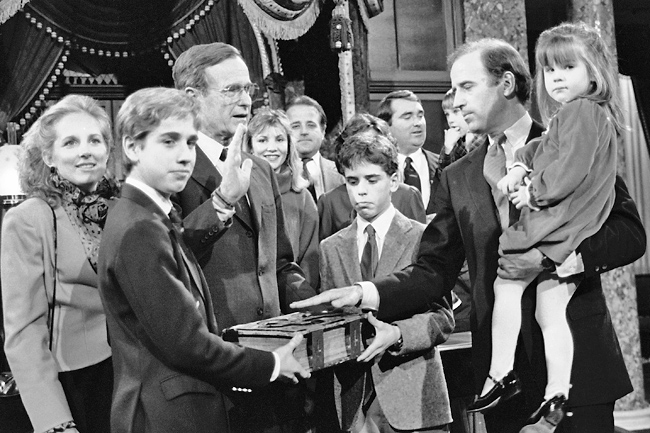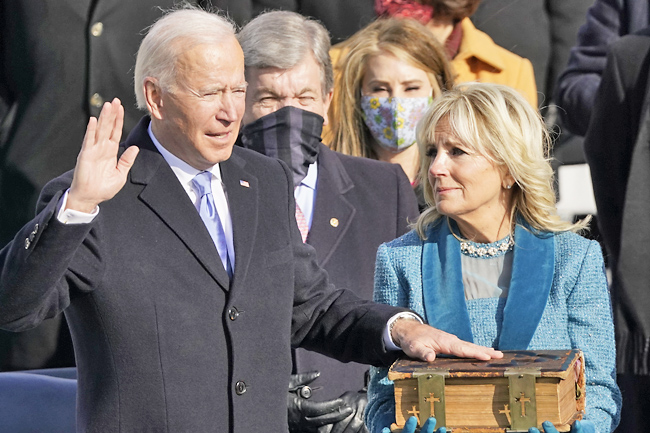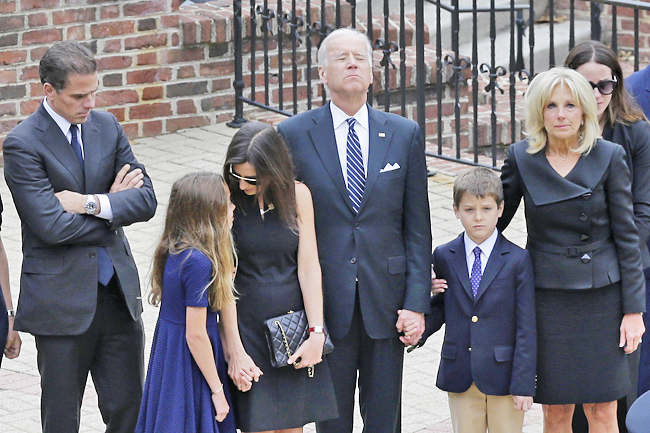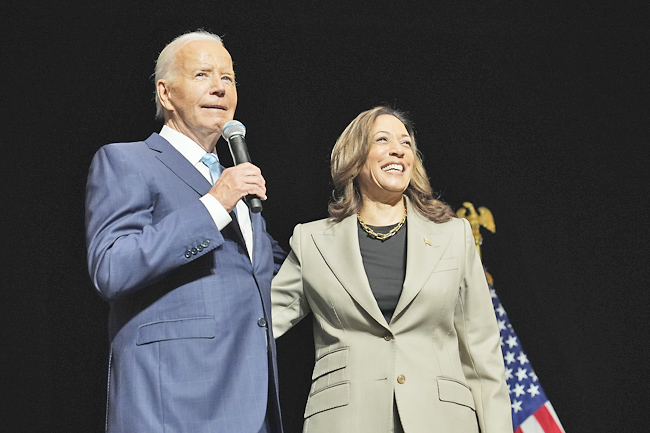CHICAGO (AP) – Sixteen years ago, a triumphant Joe Biden addressed an adoring crowd at the Democratic National Convention in Denver, his smile radiating confidence about the country’s future and his own journey.
The soon-to-be vice president hugged his son Beau. He spoke about how his own parents had endowed him with a sense of grit and tenacity.
“Champ, when you get knocked down, get up,” he recalled his father, Joe, saying. Biden then repeated the lesson taught to him by his mother, Catherine Eugenia Finnegan Biden, who was seated in the audience: “Failure at some point in your life is inevitable, but giving up is unforgivable.”
In 2024, Biden was not forced to reconcile a failure of his presidency. He compiled a list of significant accomplishments that will be felt for years. But he chose to give up his campaign under pressure from Democratic leaders, in a remarkable concession to the passage of time, when allies in his party and a clear majority of United States (US) adults concluded the 81-year-old should not seek re-election. After Biden’s decision to leave the presidential race, his party not only forgave him, its leaders praised him.
So Joseph Robinette Biden Jr went to the Democratic National Convention in Chicago last week both revered and resigned.
Biden had consolidated his party’s support and did not have a serious competitor. But that support crumbled after a disastrous debate in June when his frailties were on unsparing public display, reinforcing his greatest liability – that at his age he might no longer be up for the job.
In Chicago, Biden decided to get back up and show the difference between stepping aside and quitting. His vice president, Kamala Harris, is now in the spotlight as the nominee. For the president, it’s the latest in a life marked by the cycles of loss and recovery.




“He has had wonderful things happen to him and he has had terrible things happen to him,” said Ted Kaufman, his friend, former aide and appointed successor in the Senate from Delaware.
Biden arrived at the White House with a hope that a focus on the public good could help heal the partisan malice that emerged with the ascent of former President Donald Trump, now again the Republican nominee.
No one denied the ego necessary to pursue the White House. But those interviewed stressed that Biden sees his legacy more as a leader who could demonstrate during a cynical era that government was a force for good. “It’s less about him,” said assistant to the president and the White House staff secretary Stefanie Feldman. “He wants people to understand that the federal government is delivering results.”
Biden deployed his decades in the Senate to forge a bipartisan infrastructure deal. He signed into law far-reaching investments in advanced technologies and brokered a debt deal with Republicans to avoid a catastrophic default. Biden last week stressed that he was reducing prices on 10 of Medicare’s costliest prescription drugs.
He also helped to restore the faith of longtime allies that the US could be an unflinching partner, and led the effort to provide much needed backing for its allies.
He dealt with a pandemic, inflation, immigration challenges, a broken supply chain and a troubled withdrawal from Afghanistan.
“The experience he brought to the job – there’s no question – gave him the ability to achieve things that no one thought he could achieve,” said Anita Dunn, who worked as a senior adviser. “It’s not just experience though. It’s relationships. It’s understanding how Congress works and how members of Congress can be brought along to get things done.”
But Americans consistently saw not the accrued wisdom, but the stiff-legged, shuffling steps and the verbal struggles.
Born too early to qualify as a Baby Boomer, the arc of Biden’s political career has been full of remarkable successes and staggering defeats. He was elected to the Senate from Delaware at 29, only to lose his wife and daughter in a car crash. He found a new partner in Jill and sought the presidency in the 1988 cycle, only to withdraw after reports of plagiarism. Then he dealt with serious health issues, surviving two brain aneurysms.
His 2008 presidential campaign was a washout, but he became President Barack Obama’s trusted number two. Then Beau died of brain cancer and his other son, Hunter, succumbed to drug addiction. Against long odds, Biden won the Democratic nomination in 2020 and then beat Trump, only to have his party want someone else to run against his predecessor this year.
Aides have recalled Biden being told years before that China’s economic growth would be a positive because it would lower prices for consumers, even if it meant that more manufacturing would move overseas. “If it helps the consumer and hurts the worker, we have a problem,” Biden told them at the time.
Biden was so focused on middle-class jobs that he found his presidency, ironically, defined by the public’s desire for lower prices. Inflation was a symptom of global disruptions caused by the pandemic and war, as well as government spending meant to stabilise the economy for workers that helped spur a historic burst of hiring.
The tough logic is that Biden anchored his presidency with an eye toward what America could be like a decade from now.



















































